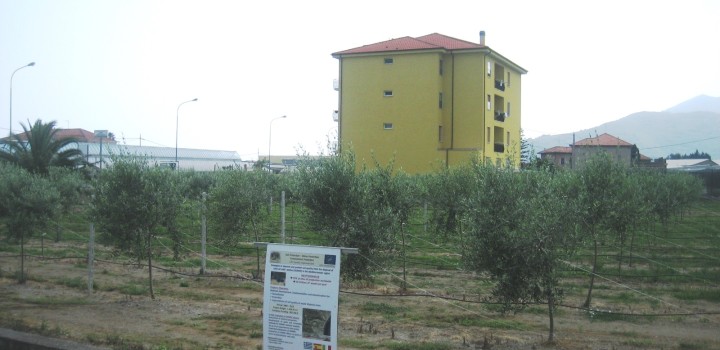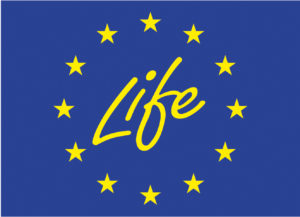STRATEGIES TO IMPROVE AND PROTECT SOIL QUALITY FROM THE DISPOSAL OF OLIVE OIL MILLS’ WASTES IN THE MEDITERRANEAN REGION
Products
Results and achievements of a 4-year demonstration project
Partners
• National Agricultural Research Foundation (NAGREF) – Soil Science Institute of Athens (SSIA), Greece
• Centro de Edafologia y Aplicada del Segura (CEBAS) – Consejo Superior de Investigaciones Cientificas (CSIC) – Department Soil and Water Conservation and Organic Resources Management, Spain
• Centro Regionale di Sperimentazione e Assistenza (CeRSAA), Italy
• Foundation for Research and Technology (FORTH)- Insitute of Mediterranean Studies (IMS) – Laboratory of Geophysical – Satellite Remote Sensing and Archaeo-environment, Greece
• Technical University of Crete (TUC), Greece
Funding body
Directorate General Environment – European Commission
Objectives
- Development and dissemination of innovative, environment friendly, low cost technologies for the protection of soil and water pollution from olive oil mills’ wastes;
- Establishment of an info-library/knowledge-base system to assess environmental impacts from olive oil mills’ wastes to Mediterranean region;
- Facilitate the implementation of Soil Thematic Strategy in areas close to olive oil mills;
- Design, implementation and support of a monitoring system for the assessment of the soil and water quality affected directly or indirectly from oil mills’ activities in relation to factors pressures and responses;
- Identification of potential safest uses in the agricultural sector of olive oil mills’ wastes and its possible contribution to agricultural production.
Specific objectives for CeRSAA
Info-library establishment and data organizing (collected with the support of the other participants):
- Soil and water monitoring systems and remedial/protective methods;
- Olive oil mills’ activities;
- Risk analysis;
- Assessment of protocols for lab analysis;
- Legislation
Controlled use of liquid and solid wastes in tree-land fertilization:
- Validation of traditional methods for the assessment of OOMW characteristics and comparison with innovative methods (NIR spectroscopy);
- Evaluation of effects of OOMW application in open field.
Materials and methods
The Project foresees the development and application of 20 Actions.
Actions carried out by CERSAA:
ACTION 5. Info-library establishment – Data organizing
Data collection regarding Methods of soil/olive oil wastes chemical analyses, Monitoring techniques to assess potential risks of olive oil mills’ wastes-principally aimed at evaluating and quantifying the presence of vegetal oils, the level of BOD, COD and the pesticide residues, taking under consideration techniques potentially adaptable for an on site risk evaluation, methods for solid wastes treatment applied so far, or investigated and applied in pilot scale-benefits, methods to evaluate the presence of pesticides in olive oil mills’ wastes at low and very low content, national environmental legislative framework.
ACTION 10. Controlled use of liquid and solid wastes in tree-land fertilization
Evaluation of the potential effects of wastes application on tree-land fertilization; development of useful guide for the safe use of mills’ wastes in tree lands (olive trees) and of rapid methods of wastes analyses which can be used in field.
By the completion of this action an integrated evaluation of scientific, technical and economical data will be carried out. The necessary conditions for the extension of the small/local scale technique at a larger regional/national scale technology will be identified and an informative guide/report will be created.
Expected results
By the completion of the project the following benefits are expected:
- An integrated management plan with effective technologies (soil protective/remedial technology, pre-treatment of wastes, small-scale composting), which will include actions and means to ensure soil quality, biodiversity preservation as well as, water bodies protection in affected and non-affected areas;
- An integrated strategy to improve and protect soil and water quality from the disposal of olive oil mills’ wastes suitable for the entire Mediterranean region;
- Reduction of wastes’ toxic load by pre-treatment with abundant/low cost/harmless materials which, in most cases, are considered as by-products/wastes of industrial operations, this will also enhance utilization/recycling of industrial wastes;
- Profile of pollutants and nutrients concentration in soils as well as, identification of their pathways and fate in aquatic bodies;
- Assessment (quantitative where possible) of soil, surface and groundwater risk;
- A soil monitoring system which will enhance the control of the targeted area as well as, others with similar activities, by monitoring only the appropriate parameters which will reflect the wastes’ disposal activity of the area;
- A useful guide for the safe use of mills’ wastes in tree land;
- Development of rapid analysis methods for the continuous monitoring of the wastes’ quality parameters;
- A practical technique and guidelines for compost production in small scale aiming to reduce wastes’ amounts disposed uncontrolled in soil and water bodies;
- Minimization of contamination in affected media (soil, surface-, groundwater) and compliance with national and EC legislation;
- Development of a WEB_GIS module for interactive construction of thematic maps in areas where olive oil mills are located;
- An Info-library/knowledge base containing data relative to “Olive oil production” which will be accessible also to public;
- A web site for the wide dissemination of the projects results, which will also host the Info-library and the GIS data;
- Dissemination of project results through a well designed dissemination campaign;
- Increase of awareness of producers, local authorities, people in participating and other Med countries;
- Contribution to sustainable development of olive oil industry;
- Reduction of CO2 footprint;
- Improvement of the quality of life in affected areas;
- Potential increase of job vacancies in the sector through the need for specialists and construction of central units for the treatment of oil mill wastes;
- Promotion of gender equality issues. Except the coordinator, who is female, at least 50% of scientists will be women.


